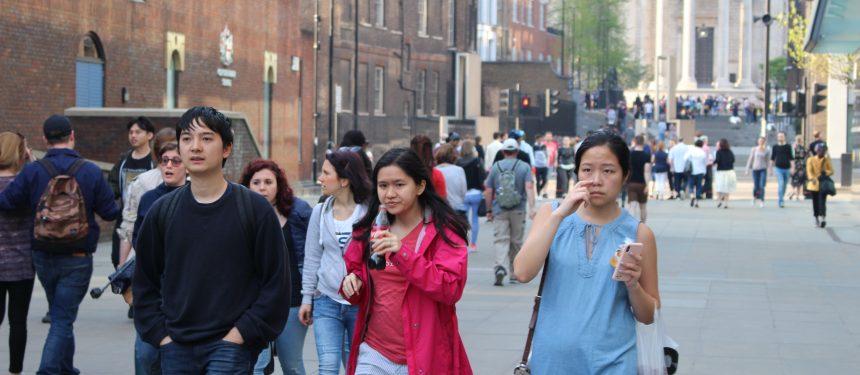Universities with test optional systems are at an advantage when recruiting undergraduates from China, according to a white paper from Sunrise International Education, while others suggest accepting China’s national university entrance exam offers “new opportunities” for students who miss their first choice domestic university requirements.
News and business analysis for Professionals in International Education
Have some pie!
Gaokao offers colleges “new opportunities” for global recruitment
 China's Gaokao test is increasingly being accepted by US schools, following moves from other universities around the world. Photo: The PIE News
China's Gaokao test is increasingly being accepted by US schools, following moves from other universities around the world. Photo: The PIE News Sunrise’s paper highlights the number of US colleges embracing SAT/ACT test-optional admissions policies is increasing, at the same time as more HEIs consider Gaokao scores – China’s national university entrance exam – in the admissions process.
“These changes left a large footprint in China”
“Major national universities like Washington University in St. Louis, University of Chicago, and NYU are test optional or flexible, and even though they often have some testing requirement for international students, these changes have left a large footprint in China,” the paper explained.
The University of New Hampshire and the University of North Texas are the first state universities to accept the Gaokao, and many privately funded universities across the US also do.
Test-optional universities that accept applicants in the summer have a “unique opportunity” to recruit students with Gaokao scores through targeted campaigns in June and July, it added.
“We expect that in June of 2019, test-optional universities that make students aware of their policies can expect to see an uptick in applications in the last week of June and the first week of July.”
The number of students in China taking the Gaokao in 2018 was estimated to be just short of 10 million, and the move by US universities follows counterparts overseas.
“Australia has led the way for this”
In Canada, 30 universities accept Gaokao in admission decisions, as do seven of the Group of Eight universities in Australia. In 2018, the UK’s University of Birmingham announced it would start accepting Gaokao scores.
“Australia has led the way for this, and a number of European countries have also normalised accepting the Gaokao,” Andrew Chen, chief learning officer at WholeRen Group told The PIE News.
In February the Gao Kao Admission Consortium was established to focus on the use of Gaokao scores for admission to US HEIs.
GKAC recruits in China as a consortium, and will admit its first cohort in autumn 2019.
The organisation, working with the WholeRen agency, currently has five core partner institutions: California State University-Fresno, Western New England University, Santiago Canyon College, the University of Hawaii-Kapiolani Community College, and the University of North Texas.
“Flexible admissions requirements for Gaokao students demonstrate these institutions’ progressive understanding of holistic admissions evaluations for an international population base,” the group said.
Students who achieve scores in the top 25% for their province qualify for admission and scholarship opportunities – UNT will be offering up to $16,000 scholarships, while WNE will offer between $8000-$21,000 per year.
“Students who prepared for the Gaokao have not thought about study abroad”
“Gaokao admission is a province-wide quota system,” Chen added. “For example, if Peking University gives 20 seats each to a densely populated province such as Henan, and a remote province such as Xijiang, the chance for Xinjiang students will have much higher chance.”
Students have become “Gaokao Migrants” to take advantage of this regional quota, Chen noted, perhaps because they have missed out on the grades needed, and resort to a second choice of studying abroad.
“Students who have prepared for the Gaokao have typically not entertained the idea of study abroad and we are providing this option and opportunity,” Chen said.
GKAC provides new opportunities for both students and US colleges, he suggested.
“In the past, since US universities ignored Gaokao scores due to lack of understanding, the students usually would have to spend a gap year to work on SAT and TOEFL exams,” he said.
The Sunrise paper also suggested agents and consultants in the China are experiencing increased competition from boutique consultants, tighter government regulations on training classes and higher taxes. Sunrise predicts competition will intensify in 2019.
The country’s national Double First Class Initiative, with aims to boost 42 Chinese universities into top world rankings by 2050, is focusing on improvements for HEIs in-country, rather than international cooperation.
“Administrators seem to be channeling much of the Double First Class funding away from international cooperation projects with Western universities,” the document explained.
Sunrise also highlighted the increasing sophistication of international schools in China’s second and third-tier cities, but a slow down in the pace of economic growth poses challenges for foreign boarding schools, it argued.
Still looking? Find by category:



Good to hear this, better for all and less need do real studying not for multiple exams.